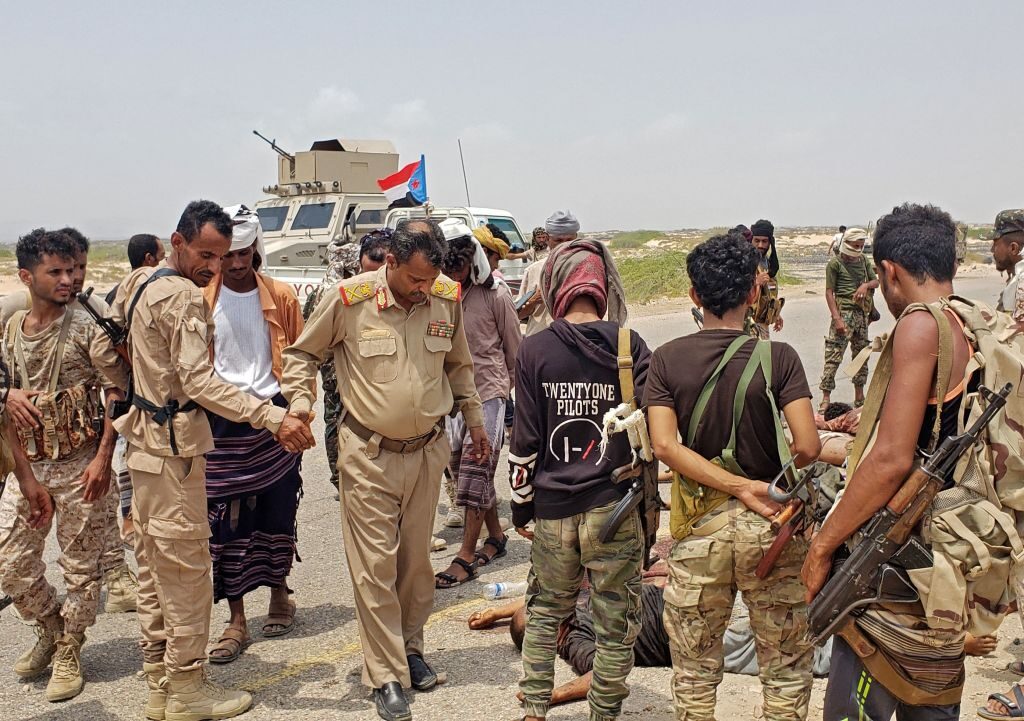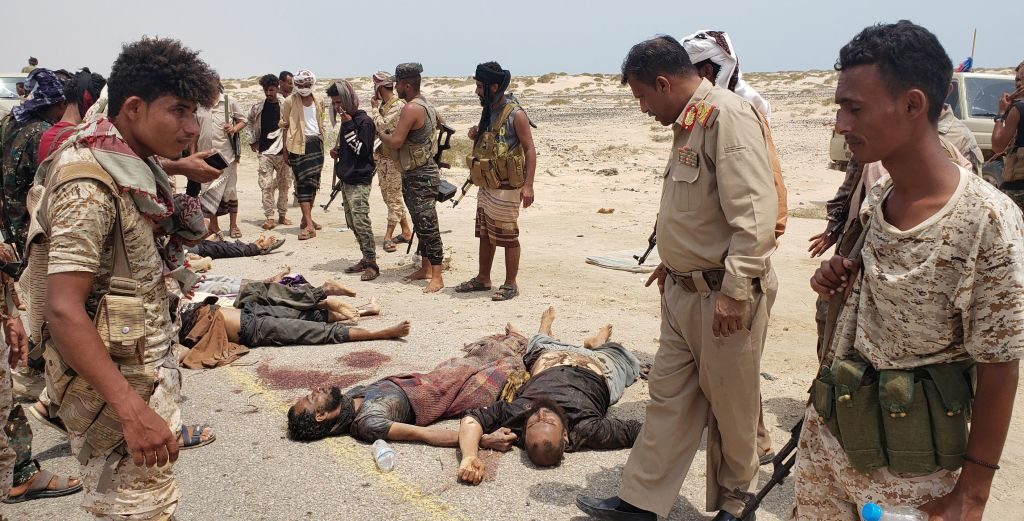Al-Qaeda forces attacked separatists backed by the United Arab Emirates (UAE) in southern Yemen on Tuesday. Twenty-one separatist fighters were reportedly killed during three hours of gun battles, along with six al-Qaeda members.
Yemen has been in a state of civil war since 2014, when Iran-backed Islamist insurgents known as the Houthis overthrew the internationally-recognized government and seized the capital city of Sanaa.
The southern separatists are another faction, mostly aligned with the deposed government and the Saudi-led Arab coalition that intervened against the Houthi insurgency. Southern Yemen was an independent state until 1990.
The separatists dramatically split with elected President Abdrabbuh Mansour Hadi in 2018 and took control of the port city of Aden, where Hadi’s government is headquartered. Hadi accused the separatist leaders of plotting a coup against him.
The situation was made more awkward by direct UAE support for the separatists, even though the Emiratis were partners in the Saudi coalition fighting on Hadi’s behalf.

Brigadier General Abu Bakr Hussein Salem (3rd-L), governor of Yemen’s southern province of Abyan, and other security personnel inspect the bodies of dead members of al-Qaeda who were shot after launching an attack on a security checkpoint of the UAE-trained Security Belt group in Ahwar district on September 6, 2022. (AFP via Getty Images)
The separatists signed a power-sharing deal with the Hadi government in November 2019, restoring their alliance. In the summer of 2020, they renounced their quest for self-rule – at least for the time being – and reaffirmed their commitment to a “strategic partnership with the Arab coalition.”
Yemen’s civil war and shifting factional politics created many opportunities for terrorist gangs, including the Islamic State and al-Qaeda, whose operation in Yemen is often referred to as “Al-Qaeda in the Arabian Peninsula” or AQAP.
Yemeni government officials told Agence France-Presse (AFP) on Tuesday that al-Qaeda gunmen attacked several positions held by the “Security Belt,” a local militia group developed from tribal fighters over the past half-decade by the UAE to stabilize southern Yemen. Like everything else in Yemen, the separatists are divided into factions, and the UAE picked the strongest one to support.
The Security Belt’s charter includes operations against ISIS and AQAP forces. The separatists announced a major military operation in the south to “cleanse it of terrorist organizations” in late August.
Two security sources confirmed the death toll of 21 separatist fighters and 6 al-Qaeda fighters to AFP. Other sources told Reuters that 20 separatists were killed in skirmishes that involved “rocket-propelled grenades, light and medium weapons, and military vehicles” in an ambush on a security checkpoint.

EDITORS NOTE: Graphic content / Brigadier General Abu Bakr Hussein Salem (2nd-R), governor of Yemen’s southern province of Abyan, and other security personnel inspect the bodies of dead members of al-Qaeda who were shot after launching an attack on a security checkpoint of the UAE-trained Security Belt group in Ahwar district on September 6, 2022. (AFP via Getty Images)
The Security Belt said on Twitter that one of its casualties was a commander in its Anti-Terror Brigade named Yasser Nasser Shaye. Several of the others killed were described as his “companions.”
“We are dealing with Al-Qaeda in the Arabian Peninsula, the world’s largest terrorist organization. If we were successful in defeating them, the world as a whole, not just the south, would benefit,” a spokesman for the separatist forces said.
AQAP is flexing its muscles even as the Houthis observe an uneasy cease-fire with the Yemeni government. On Saturday, the al-Qaeda terrorists released a video of a U.N. worker who was kidnapped six months ago along with four of his colleagues.
The victim, identified as a Bangladeshi national named Akam Sofyol Anam who served as director of the U.N. Office of Security and Safety in Yemen, was forced by his captors to call on “the U.N., the international community, the humanitarian organizations, to please come forward” and meet al-Qaeda’s demands, although he did not specify them.

COMMENTS
Please let us know if you're having issues with commenting.